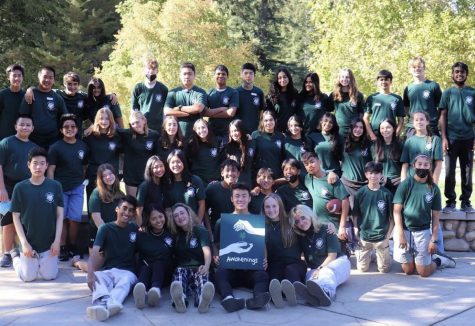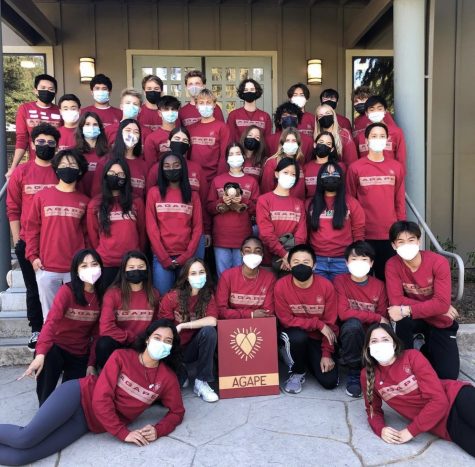Leading Retreats Post-COVID
What it’s like to be a retreat leader for the first off-campus retreats since March 2020.
October 18, 2021
Retreats are an essential component of the Mitty experience—a chance for members of every grade level to deepen their understanding of themselves and others. This year the reemergence of off-campus retreats embodies yet another aspect of the continuing return to normalcy. Mr. Bill Kroenung, Associate Campus Minister for Retreats, explains, “For students to be able to stay later in the evening, be in a talent show, get to know each other well, sleep in a cabin with six other students, get up and have breakfast together… you can’t do that on campus.”
“The first off campus retreat this year,” Mr. Kroenung continues, “was the LIFE Corps Formation retreat in the middle of August before the first day of school. The seventy seniors on that retreat were trained to be the leaders for retreats this year.”

These seniors went through immense preparation to serve the part of leading younger students. Mr. Kroenung explained that, at their formation retreat, “they hear talks on faith [from members of the campus ministry faculty], begin to write and journal about their own faith journey, and go through training on how to lead a small group.” Last year, with these preparations being made over Zoom, they were slightly different, but Mr Kroenung emphasized that “the goal’s always the same.”
After this instruction, the leaders are expected to write a speech on their experience with their faith, to be presented to the younger students on the retreat. Senior Rachel Romero describes the difficulty of writing this talk, saying, “At first, I had no idea what to write. I was given the topic of love of family, and there were so many strings I wanted to talk about, but I just had to pick one.” Despite the challenge of writing a talk, the outcome was well worth the effort, as senior Keira Biala expresses, “It was a bit scary, knowing people look up to you, and I had to be that person… but I was also pretty excited to challenge myself, meet new people, and help them on their paths.”

After finishing writing their speeches, the senior leaders were given the chance to present them to the other senior leaders to relieve some of the pressure they may have felt about sharing them. This proved to be an emotional experience, as it allowed for the leaders’ messages to be validated by their peers. Rachel reflected on this, saying, “When I shared my talk with the seniors, they told me stuff like, ‘Your story was so powerful, I almost cried,’ and I had no intention of that… but I then realized it did have a powerful impact.” She added, “It was reassuring to know that my story is going to make a difference.” Looking back on her own talk to the other leaders, Keira acknowledged, “When we got to do the talks in front of the rest of the leaders before officially going on the retreat, I cried, but it was good expressing my emotions to people so that they can go and move on through their journey.”
Both Keira and Rachel had gone on retreats as underclassmen. For Rachel, “those retreats made me want to become a leader.” As for Keira, “leading allowed me to understand different people and be the person to relay the messages I had learned from past retreats.”
Over the years, although the procedure of the retreats changed briefly for the pandemic, their ultimate intentions remained the same. As stated by Mr. Kroenung, on retreats “students get to know one another on a level that’s different from just sitting next to someone in class, or seeing someone in Aymar. They get to be vulnerable with one another and build lasting friendships.”


